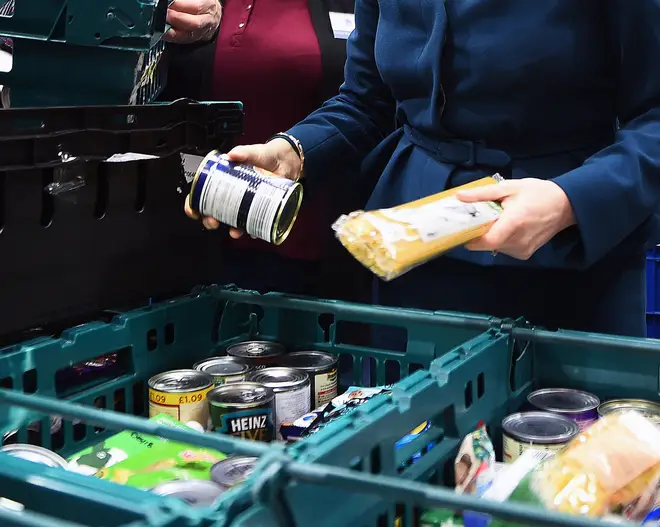
Paul Brand 7am - 10am
25 September 2020, 00:03 | Updated: 25 September 2020, 00:09

The North East of England has seen the biggest rise in child poverty since 2013 - around three times the UK average, according to a think tank.
Child poverty rose by nine percentage points in the North East between 2013 and 2019, compared to three percentage points across the UK, an Institute for Public Policy Research (IPPR) report has found.
It comes after a fall in child poverty of 13 percentage points between 1999 and 2013 in the North East, according to the IPPR research.
Families in the North East are "especially vulnerable" to the impact of the coronavirus pandemic because of the region's history of high poverty rates and the long-term effects of regional inequalities, the report warns.
Read more: Marcus Rashford warns of 'devastating' effects of child poverty as he launches new task force
Read more: "People go hungry because rent is too high": Charity boss exposes extent of poverty in England
It adds: "A higher proportion of children live in households which go without things like heating, an annual week's holiday, hobbies and leisure activities or school trips.
"Poverty is reflected in outcomes for children's health and secondary school attainment in the region.
"These were urgent issues before Covid-19; now they are critical."
The think tank - alongside the Bishop of Newcastle and the North East Child Poverty Commission - is calling on local and national leaders to prioritise ending child poverty in the North East.

Johnson: poverty has declined under this government
Anna Round, report author and senior research fellow at IPPR North, said: "No child should ever have to grow up living in poverty, because it is a problem that can be solved.
"Yet here in the North East, despite progress during the 2000s, we've seen the biggest increase in child poverty of all of the regions and nations of the UK in recent years.
"Growing up in poverty has significant, grave consequences for the health and wellbeing of communities. So if we reduce it, we will lay the foundations for long term resilience and recovery, and see improvements in the life course across the region".
Read more: Child poverty has increased by 38% in working families
The Bishop of Newcastle, Christine Hardman, said: "Child poverty is the most pernicious thing of all, as all too often its effects last a lifetime. This report is an urgent call to action.
"If we wish to avoid being condemned by our actions or inaction in this our time, as a society we have to commit to putting the interests and needs of our children and young people first."
Sarah Longlands, director of IPPR North, said the Government should make ending child poverty its priority if it to stay true to its 'levelling up' goal.
"Government should begin by setting out in the forthcoming Comprehensive Spending Review how they will double down on levelling up life chances for children across the North," she said.
"This needs to include putting ending child poverty at the heart of future devolution deals."